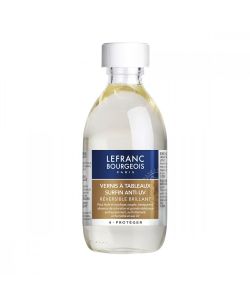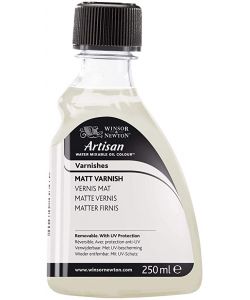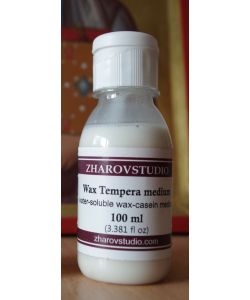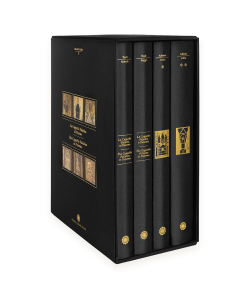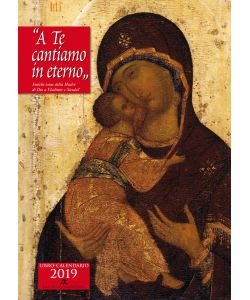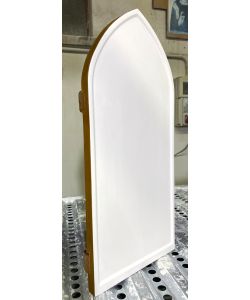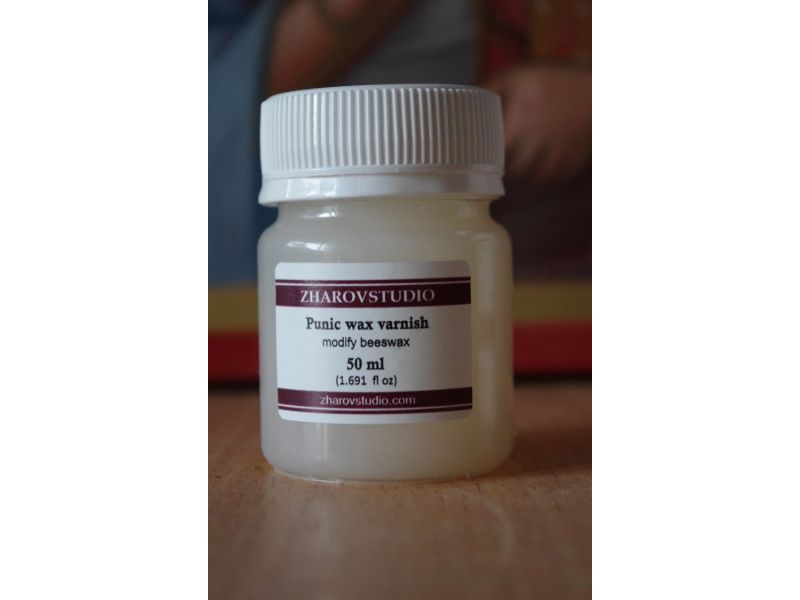
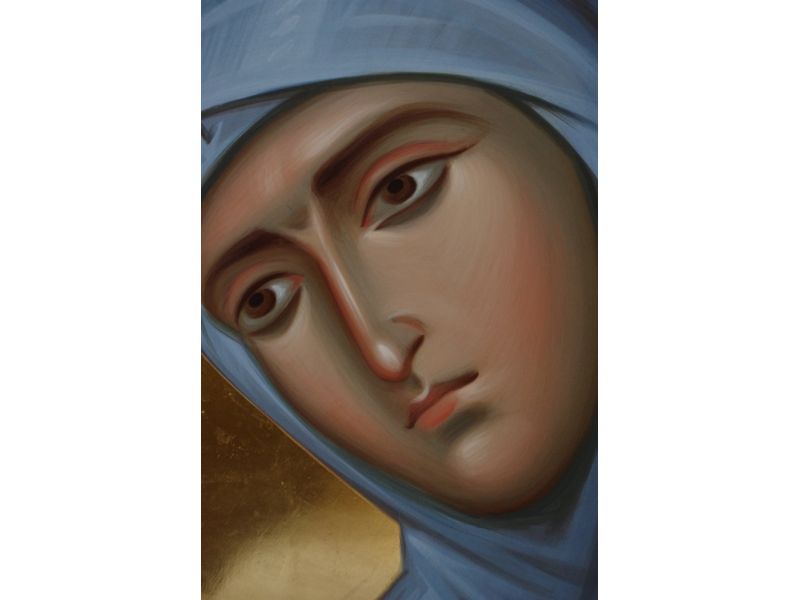
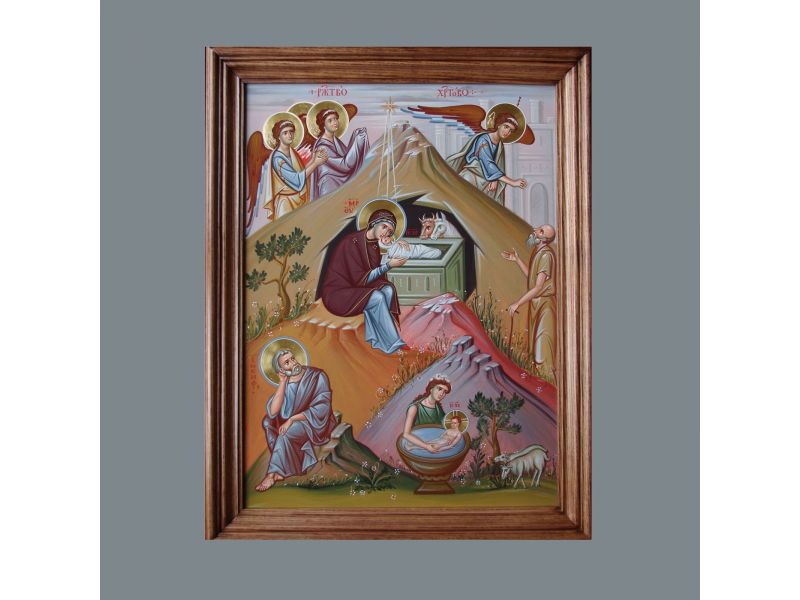
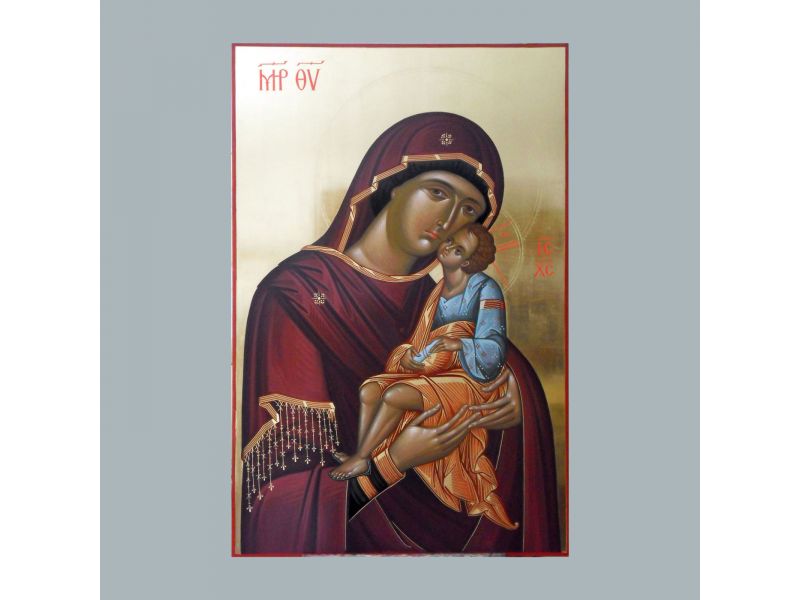




Punic wax paint 30 ml, original - Zharov studio Belarus
Punic wax varnish.
The varnish is prepared on the basis of the legendary Punic wax described by Pliny the Elder in his " «Naturalis Historia» in 77 AD.
The Punic wax obtain from natural bees wax according the technology used in ancient times in the Roman Empire.
Contains: Punic wax and turpentine solvent.
The wax varnish is not intended for covering the gold on the icon, the varnish should only be applied to the paint layer!
The advantages of the Punic wax varnish.
* Varnish will never turn dark or yellow.
* Varnish dries quickly, without collecting dust.
* Varnish, after drying, gives a matte surface that can be additionally polished to obtain a very pleasant semi-gloss shine that does not change over time.
* When applying varnish to drying olifa, it significantly reduces olifa "stickiness".
Varnish applied with a flat synthetic brush to the surface of the painting. We recommend applying 5-10 current layers after each layer has dried.
When you apply all the layers of varnish, let it dry for several hours, the surface of paint become mat, after this the surface of paint make worm with a hairdryer and at the same time polish the surface with a brush, you will get a shiny and more transparent layer. One the next day you can additionally polish it with soft cloth (which usually use to wipe the glasses.)
The varnish based on Punic wax dries in two stages. The first stage within a few minutes, immediately after the evaporation of the turpentine, the varnish does not give a touch. The second stage is additional hardening of the wax, which occurs after one-two days.
If during coating the wax goes a little on gold and it became mat, this is not a problem, after covering of gold with oil varnish wax become transparent.
How to covered with wax varnish the egg tempera paint.
Cover egg tempera icon with thin layer of olifa, let it dry ( 2-3 days), and then covered paint with layer of Punic wax varnish , let wax varnish dry some hours and then polish it with brush. One the next day you can additionally polish it with soft cloth (which usually use to wipe the glasses.)
| Punic wax paint 30 ml, original Zharov studio Belarus | Stock: 3 - COD. CERAVERNICE | |||
| € 27,80 |

|
|||
